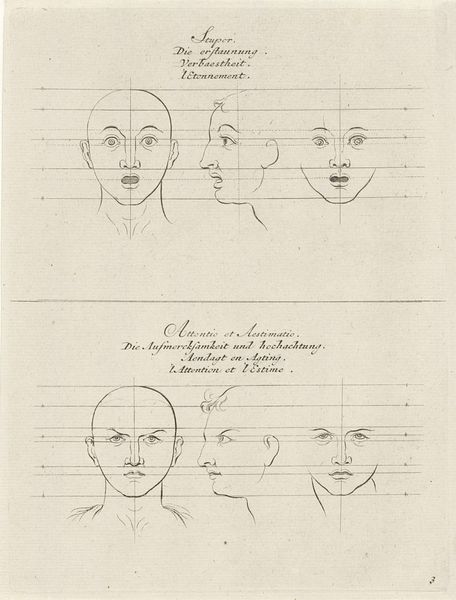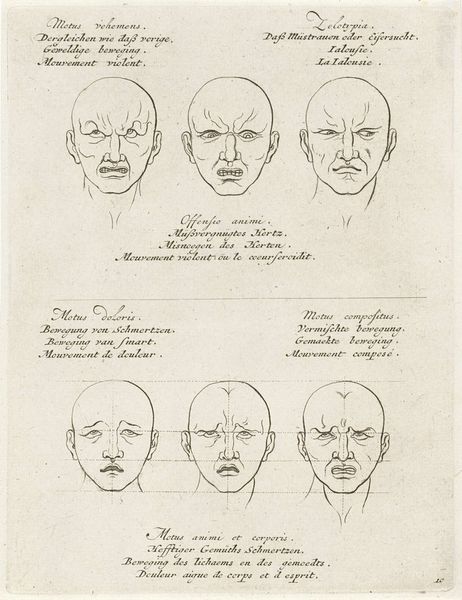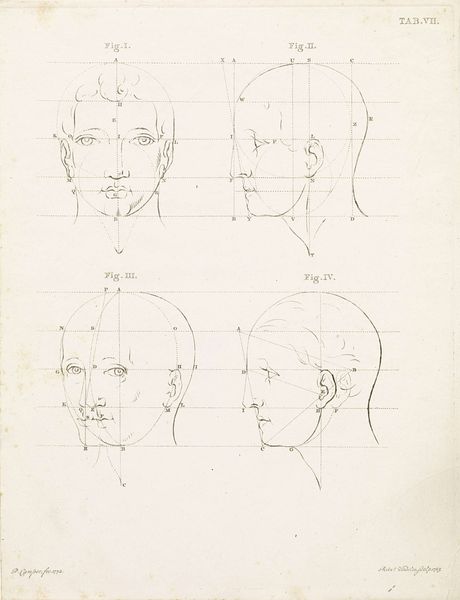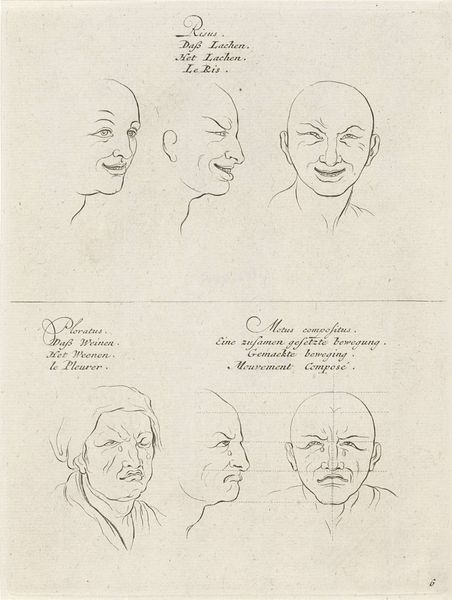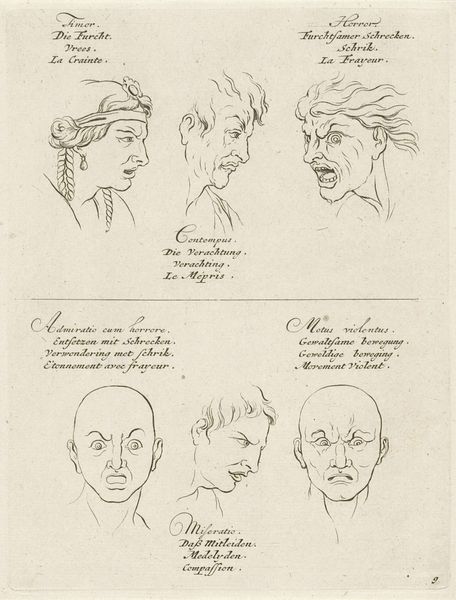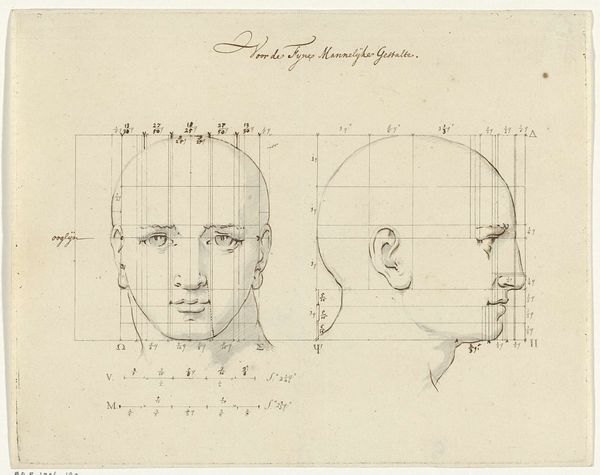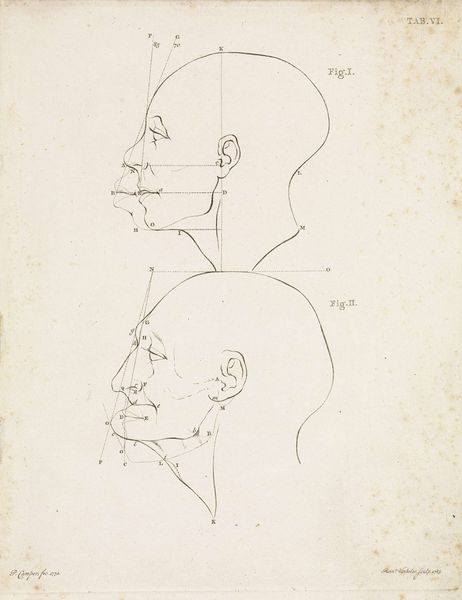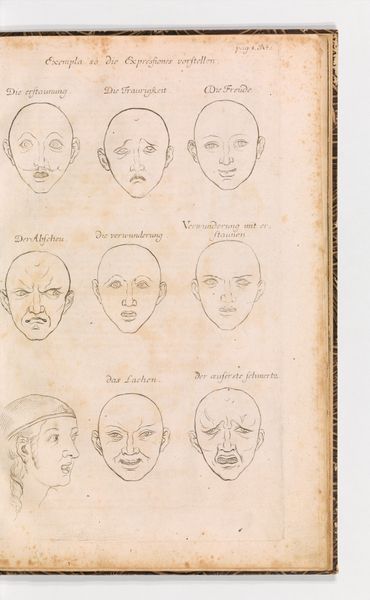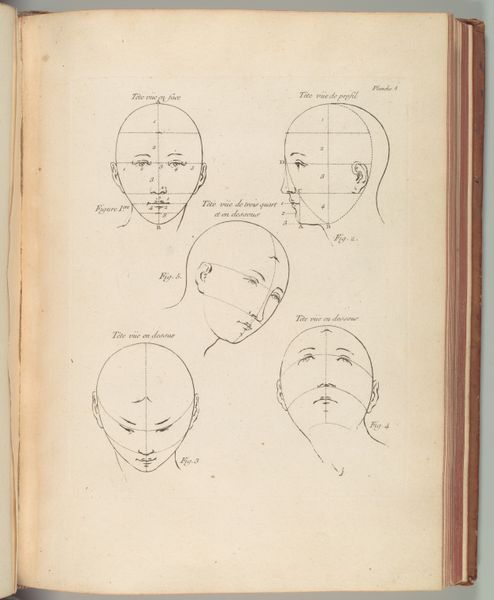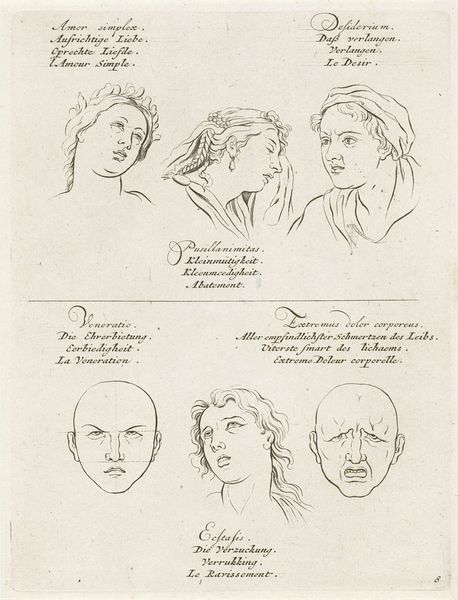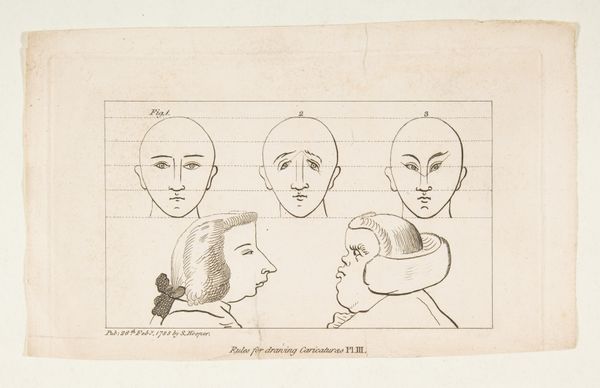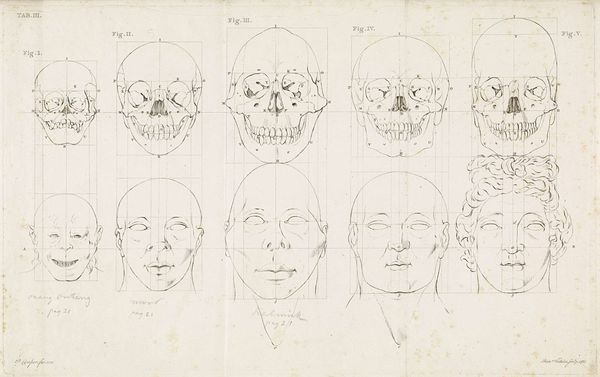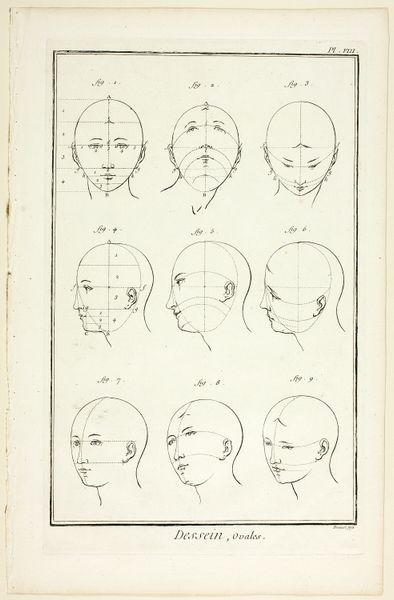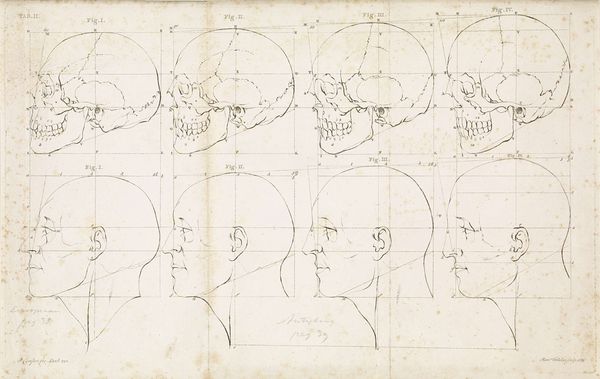
Gezichtsuitdrukking van afgrijzen en gezichtsuitdrukking van droefheid 1692 - 1711
0:00
0:00
pieterschenk
Rijksmuseum
drawing, pen
#
portrait
#
drawing
#
comic strip sketch
#
imaginative character sketch
#
quirky sketch
#
baroque
#
figuration
#
personal sketchbook
#
idea generation sketch
#
sketchwork
#
sketchbook drawing
#
pen
#
storyboard and sketchbook work
#
sketchbook art
#
initial sketch
Dimensions: height 212 mm, width 160 mm
Copyright: Rijks Museum: Open Domain
Curator: So, what grabs you about this drawing, titled "Gezichtsuitdrukking van afgrijzen en gezichtsuitdrukking van droefheid" by Pieter Schenk? Editor: It's a pen drawing, made sometime between 1692 and 1711. It’s at the Rijksmuseum. I'm struck by its clinical, almost diagrammatic quality. The raw emotion contrasts with the calculated layout. What do you make of this work? Curator: For me, it’s fascinating to consider the context of its making. Schenk was likely participating in a larger project. It involves a desire to codify and commodify emotion, turning it into a skill applicable in many forms, most especially to theatre or public speaking. These are essentially templates for sale. How accessible were materials like paper and ink at this time? Editor: I never thought about that. So the act of making, even at its most basic level with pen and paper, was itself tied to economic forces. Do you think that impacts how we read the drawing itself? Curator: Absolutely. The availability and cost of these materials dictated who had access to artistic production. In addition, the *process* of creating these, making them less individualized expression and more akin to a kind of artisanal, replicable knowledge. This removes some of the…mystique, perhaps, around ‘art.’ It centers the conversation instead around labor and commerce. What's your reaction to this? Editor: I see what you mean. Viewing it that way definitely challenges the notion of art as purely individual expression. It makes me think about how knowledge, especially emotional knowledge, was being circulated and standardized back then. Curator: Exactly. It compels us to acknowledge that this is not a solitary masterpiece, but evidence of systematized, almost industrial means. The *sketch*, a stage in development rather than something final. Editor: Thanks. It gives a whole new way to think about it - how something seemingly simple, like a pen drawing of a face, can reveal so much about labor and making of knowledge in its time.
Comments
No comments
Be the first to comment and join the conversation on the ultimate creative platform.
